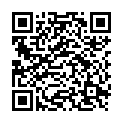|
|
|
| Module code: MAB-3.3 |
|
4V (4 hours per week) |
|
5 |
| Semester: 3 |
| Mandatory course: yes |
Language of instruction:
German |
Assessment:
120-minute written exam
[updated 12.09.2004]
|
MAB-3.3 Mechanical and Process Engineering, Bachelor, ASPO 01.10.2004
, semester 3, mandatory course
|
60 class hours (= 45 clock hours) over a 15-week period.
The total student study time is 150 hours (equivalent to 5 ECTS credits).
There are therefore 105 hours available for class preparation and follow-up work and exam preparation.
|
Recommended prerequisites (modules):
None.
|
Recommended as prerequisite for:
MAB-4.3 Automation Engineering
[updated 17.08.2012]
|
Module coordinator:
Prof. Dr.-Ing. Ernst Sperling |
Lecturer: Prof. Dr.-Ing. Ernst Sperling
[updated 18.06.2004]
|
Learning outcomes:
After completing this course students will be able to assess and select measuring instruments and equipment for a particular task, set up, calibrate and use measuring systems, and analyse the results.
[updated 12.09.2004]
|
Module content:
LECTURES:
Fundamentals of metrology
- Basic requirement
- Units
- Measuring systems
- Measurement errors
Components of measuring equipment
- Sensors
- Devices that transform measured variables
- Devices that process measured variables
- Devices that output measured variables
- Devices that store measured variables
Measurement signals in computer networks
LABORATORY EXERCISES:
Example: Calibrating measuring equipment, conducting measurements and analysing results
Example: Measurements using strain gauges
Example: Measurements using computer-assisted data acquisition
[updated 12.09.2004]
|
Teaching methods/Media:
Lecture notes
Course notes on laboratory exercises
[updated 12.09.2004]
|
Recommended or required reading:
Hoffmann, J.: Taschenbuch der Messtechnik; Fachbuchverlag Leipzig
Profos, P.: Handbuch der industriellen Messtechnik; Vulkan-Verlag Essen
[updated 12.09.2004]
|


